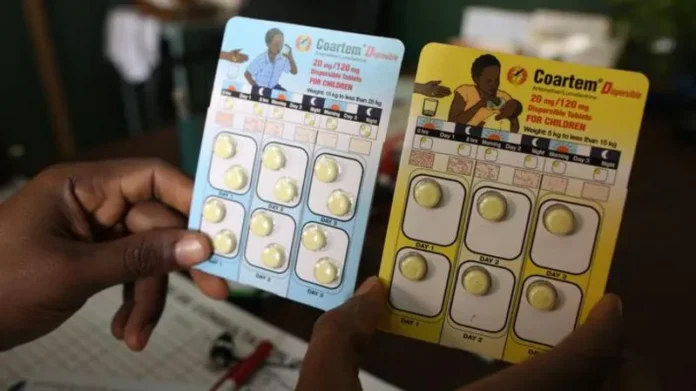The first-ever malaria treatment specifically suitable for babies and very young children has just been approved for use!
Can you feel that excitement? This isn’t just another drug; it’s a literal lifeline, a game-changer that is expected to be rolled out in African countries within weeks. For decades, the smallest and most vulnerable among us have faced immense risks from malaria, but now, thanks to dedicated scientific effort, a critical “treatment gap” has finally been closed!
Closing a Critical “Treatment Gap”: A Long-Awaited Solution
For far too long, there have been no approved malaria drugs specifically formulated for babies. Think about that: the tiniest, most fragile lives, battling one of the world’s deadliest diseases, without a tailored solution. Instead, these precious infants have been treated with versions of drugs designed for older children. While these treatments saved lives, they presented a significant risk of overdose because babies’ developing livers process medicines differently, making precise dosing incredibly challenging. Experts rightly called this a “treatment gap,” a glaring void in global health efforts.
The statistics are heartbreaking: in 2023 (the most recent figures available), malaria was linked to around 597,000 deaths. And here’s the truly devastating part: almost all of these deaths occurred in Africa, and a staggering three-quarters of them were children under five years old! Within that group, the very youngest babies and small children, those weighing less than 4.5kg (around 10lb), were the most vulnerable and the hardest to treat safely. This new drug targets precisely this neglected group.
Novartis and MMV: A Partnership for Life
But now, a beacon of hope has arrived! A brand new medicine, developed by the innovative drug company Novartis, has received crucial approval from the Swiss authorities. And the best part? It’s likely to be rolled out in regions and countries with the highest rates of malaria within mere weeks! Novartis is even planning to introduce it on a largely not-for-profit basis, ensuring that it reaches those who need it most, regardless of their ability to pay. This is truly commendable!
Vas Narasimhan, Novartis’s chief executive, rightly calls this an “important moment.” He shared his pride: “For more than three decades, we have stayed the course in the fight against malaria, working relentlessly to deliver scientific breakthroughs where they are needed most. Together with our partners, we are proud to have gone further to develop the first clinically proven malaria treatment for newborns and young babies, ensuring even the smallest and most vulnerable can finally receive the care they deserve.” This is the kind of dedication and long-term commitment that truly changes lives.
The drug, known as Coartem Baby (or Riamet Baby in some countries), was developed through a powerful collaboration between Novartis and the Medicines for Malaria Venture (MMV). MMV is a Swiss-based not-for-profit organization that initially received backing from major global players like the British, Swiss, and Dutch Governments, as well as the World Bank and the Rockefeller Foundation. This highlights the global effort and partnerships required to tackle such immense health challenges.
Crucially, eight African nations also played a vital role, participating in the assessment and trials of the drug. And guess what? They are expected to be among the very first to access it! This is fantastic, ensuring that the solution reaches the communities most affected, directly benefiting those who contributed to its development.
A Major Breakthrough Towards Elimination
Martin Fitchet, CEO of MMV, echoed the sentiment of hope, calling this “another important step on the road towards ending the huge toll taken by malaria.” He emphasized, “Malaria is one of the world’s deadliest diseases, particularly among children. But with the right resources and focus, it can be eliminated.” This new drug is a critical tool in that fight. “The approval of Coartem Baby provides a necessary medicine with an optimised dose to treat an otherwise neglected group of patients and offers a valuable addition to the antimalarial toolbox.”
Dr. Marvelle Brown, an associate professor at the University of Hertfordshire’s School of Health, Medicine and Life Sciences, also hailed this as a “major breakthrough in saving the lives of babies and young children.” She highlighted the grim reality that “The death rate for malarial infections, particularly in sub-Saharan Africa is extremely high – over 76% of deaths occur in children under five years old.” She also noted that the increase in deaths is further compounded in babies born with sickle cell disease, primarily due to a weak immune system.
Dr. Brown praised Novartis’s not-for-profit approach, stating, “From a public health perspective, Novartis making this not-for-profit can help with reducing inequality in access to healthcare.” This commitment to accessibility is just as vital as the scientific breakthrough itself.
This approval is a monumental victory in the ongoing battle against malaria. It means fewer tiny lives lost, fewer families devastated, and a brighter, healthier future for millions of children in Africa. It’s a testament to what can be achieved when science, compassion, and global collaboration come together. Let’s celebrate this incredible news and look forward to seeing its life-saving impact!


